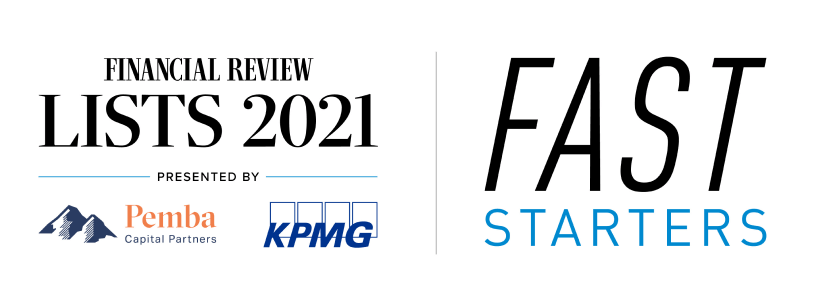Startup Loans
We love lending to Australian startups and entrepreneurs. We’re a startup ourselves, and we know how difficult it can be to access the finance you need to take your business to the next level. Lumi can provide the funds you need to better manage cash flow, innovate, expand, hire staff, and so much more. We’re here to fully support you on your startup journey.
Why do startups need funding?
As the name suggests, startups are usually just starting out. They need capital for many reasons - just like any other business! Funds could be used to help the startup develop new products or conduct market research. This is often referred to as ‘seed capital’.
As your business grows, your funding needs change. You might require additional ‘startup capital’ or ‘early stage capital’ to hire new employees, increase sales, and improve profitability and efficiency. Once things really get rolling, additional funding may help you expand into new markets, develop new products or increase your marketing efforts.
8 types of funding available to startups
There are several different funding options available to startups, many of which are described below. New businesses, however, should evaluate which type of funding is best for their situation. This includes considering the requirements for each funding option and which options will give them the best chance of success.
Here are some of the different options available to startups:
-
Traditional business loan
If you have been in business successfully for at least six months and can demonstrate profitability, you may quality for a long term or short term loan. Receiving a loan from a traditional bank will also likely require you to have collateral that can be used to secure the loan. Collateral often includes things like property, such as your home or vehicle, your savings, unpaid invoices, inventory and more. This might put your home, car or business equipment at risk if you are unable to make your repayments. This is likely why only a small percentage of startups receive traditional business loans.
-
Unsecured loan
Online lenders may be able to provide you with an unsecured business loan. That means the loan is issued and supported only by the borrower's creditworthiness - not by a form of collateral. It is typically easier to qualify for an unsecured loan and you can often receive the funds you need more quickly. For lenders, unsecured loans carry more risk which means there is usually a higher interest rate.
-
Investors
Startups may try to seek funding from a professional investor. Investors might operate individually, such as with an angel investor, or as part of a venture capital fund, where a group of investors pools their resources and a fund manager decides where they will invest. With an investor, capital is provided in exchange for equity in the business. Many startups find that it is difficult to secure investors for their business due to the competitiveness of the startup industry.
-
Family and friends
Research shows that a large amount of startup funding comes from family and friends, instead of professional investors. If you have a winning business idea and your family and friends have a few dollars to spare, than you might be in luck! Receiving funding from family and friends could provide greater flexibility in how and when you repay the loan. Of course, however, there is the risk that your family and friends could lose their money if your business fails.
-
Crowdfunding
If you think others, aside from your family and friends, would be willing to support your business, you can also try crowdfunding. Crowdfunding uses online platforms to promote a business idea, product or service and asks a large group of people to make small contributions. If you can gain widespread support, you can minimise the risk of one individual or investor losing a lot of money all at once.
-
Bootstrapping / Self-funded
One of the top sources of funding for startups is the founder’s personal savings and/or credit card. If you don’t think your business will qualify for a loan or you are not able to secure investment, you may decide to use your own savings, take out a personal loan or use a credit card to get started. These types of debt are common but can be risky. If your business fails, you might lose your savings and/or find yourself in debt. The risk, however, might motivate you to make your business profitable as quickly as possible.
-
Grants
Startups with innovative business ideas or working within specific fields or industries may also qualify for a grant, tax-incentive or other forms of support. Grants might be government-funded or run by a private organisation and will have requirements specific to their program.
-
Accelerators
Startups who are accepted into an accelerator program may also be able to receive funding. An accelerator typically accept a small group, or cohort, of startups for a set period of time and provide workspaces, training and support as well as funding. The programs may revolve around a particular industry, such as fintech, retail or property, or assist certain types of founders, such as women or Aboriginal and Indigenous businesses.
Things to consider when evaluating loan options
With all of the different types of funding options available, it can be difficult to assess which one might be best for your startup. Here are a few questions to consider when evaluating your options.
-
The stage of your startup
If you are just starting out and have yet to develop your business or product, you may need to save up money or borrow from family and friends. If your business is more established, other options such as a loan or accelerator program might propel your business forward. Startups that have been consistently performing might be best served by a traditional loan or investment.
-
The amount of funding do you need
While you think the answer might be, ‘As much as possible,” it is best to have a clear idea of the amount of funding your require to achieve the next milestone. Then, you can evaluate whether your required level of funding is available through the various options.
-
Other terms and requirements
Participating in an accelerator program or receiving a grant in exchange for funding may come with other requirements on your time and resources. It is important to understand the details of these programs before accepting funding to ensure it is the right fit for your business.
-
Giving up equity
Startups often receive outside investment in exchange for equity in their business. Founders should be clear about how much equity they are willing to give away at various stage of the business
Why choose Lumi for your small business startup loan?
Lumi offers a safe, fair and accurate lending solution that is customised to your business, even if you’re an Australian startup who has been operating for as little as 6 months with a minimum gross annual turnover of $50,000. Our short term unsecured business loans allow small to medium enterprises to grow, whether it’s covering the cost of new hires, investing in innovation, or navigating shortfalls.
As a small business owner, we know just how valuable and limited your time is, which is why we offer a fast and simple application process that can be completed online within just minutes. Once approved, your funds will be deposited the following business day. It’s that easy.
Startup business loans FAQ
What is a startup business?
A startup is a relatively new, yet fast-growing business that’s still in the process of developing their products or services. They are usually very innovative and looking to bring change to their market.
What are some of the funding challenges a startup might face?
Some of the biggest challenges facing a startup is their lack of trading history, as well as their inability to provide evidence of cash flow coming back into the business. This makes lenders hesitant to provide them with a business loan, particularly one that is unsecured. Additionally, startups who have been operating for less than 6 months or who have a gross annual income of less than $50,000 may find it difficult to obtain a business loan.
Do I need to provide security?
Generally, this will depend on the lender you apply with, as well as if the loan is secured or unsecured. Unsecured loans require no collateral, whereas secured loans will require a valuable asset (such as property you own).
What interest rate will I receive?
Again, this will depend on the lender you apply with. At Lumi, we don’t use an annualised interest rate to describe our loans. We pride ourselves on offering predictable and transparent loans for startup businesses, therefore the entire loan repayment amount will be disclosed upfront.
What if I have bad credit history - can I apply for a startup loan with no collateral?
Because applications are assessed on a case-by-case basis, bad credit history may not affect your application outcome for an unsecured startup business loan. Other factors also come into play, including income requirements, business requirements, and planned use of funds.
If you would like to learn more about different funding options that might be available for your startup, be sure to compare the different types of loans.




